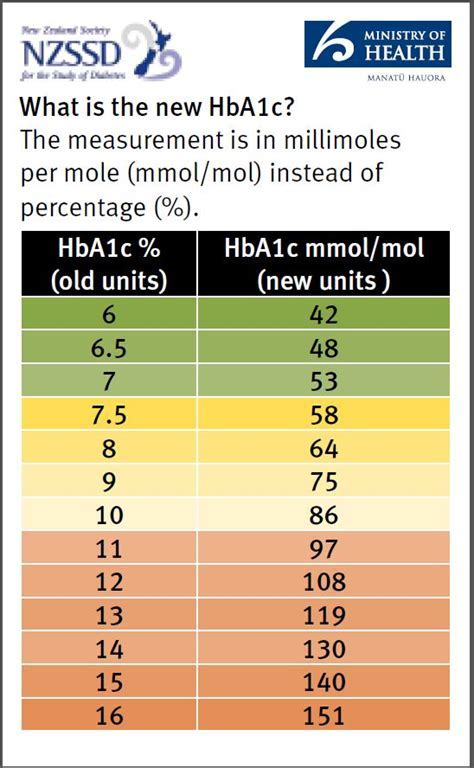Intro
Maintain healthy blood glucose with 5 tips for normal sugar levels, including diet, exercise, and monitoring to prevent diabetes and hypoglycemia, ensuring stable glucose levels and overall well-being.
Maintaining normal sugar levels is crucial for overall health, as it helps prevent conditions like diabetes, heart disease, and other complications. With the increasing prevalence of diabetes worldwide, understanding how to manage blood sugar levels has become more important than ever. In this article, we will delve into the importance of maintaining normal sugar levels, discuss the benefits of doing so, and provide actionable tips on how to achieve and maintain healthy blood sugar levels.
The human body relies on glucose, a type of sugar, as its primary source of energy. However, when glucose levels in the blood become too high, it can lead to serious health issues. The body's ability to regulate blood sugar levels is a delicate process involving the pancreas, liver, and insulin. Insulin, produced by the pancreas, helps cells absorb glucose from the bloodstream, thus lowering blood sugar levels. When this process is disrupted, either due to insufficient insulin production or the body's inability to use insulin effectively, blood sugar levels can become elevated, leading to conditions like prediabetes and diabetes.
Understanding the importance of maintaining normal sugar levels is the first step towards taking control of one's health. Normal blood sugar levels are typically measured in milligrams per deciliter (mg/dL) and vary throughout the day, especially after eating. For individuals without diabetes, normal blood sugar levels are usually between 70 to 140 mg/dL after meals and less than 100 mg/dL when fasting. Maintaining these levels not only prevents the onset of diabetes but also reduces the risk of heart disease, stroke, and other cardiovascular conditions. Furthermore, managing blood sugar levels effectively can improve energy levels, enhance cognitive function, and support overall well-being.
Understanding Blood Sugar Levels

To grasp the concept of maintaining normal sugar levels, it's essential to understand how blood sugar works. The body's primary source of energy is glucose, which is obtained from the food we eat. During digestion, carbohydrates are broken down into glucose, which is then absorbed into the bloodstream. In response, the pancreas releases insulin, facilitating the entry of glucose into cells, where it's used for energy production or stored for future use. This delicate balance ensures that blood sugar levels remain within a healthy range. However, factors such as diet, physical activity level, and certain medications can influence this balance, making it challenging to maintain normal sugar levels.
Factors Influencing Blood Sugar Levels
Several factors can influence blood sugar levels, including diet, physical activity, stress levels, and sleep quality. Consuming foods high in sugar and refined carbohydrates can cause a spike in blood sugar levels, while regular physical activity helps improve insulin sensitivity, making it easier for glucose to enter cells. Stress and lack of sleep can also disrupt blood sugar control by raising cortisol levels, a hormone that increases glucose release from stored energy sources into the bloodstream.Benefits of Maintaining Normal Sugar Levels

Maintaining normal sugar levels offers numerous health benefits. It reduces the risk of developing type 2 diabetes, a condition characterized by high blood sugar levels due to insulin resistance or the inability to produce enough insulin. Additionally, managing blood sugar levels effectively can lower the risk of heart disease and stroke by reducing inflammation and improving blood vessel function. Normal sugar levels also support weight management, as they help regulate hunger and satiety hormones, making it easier to maintain a healthy weight. Furthermore, stable blood sugar levels can improve cognitive function, reducing the risk of dementia and other neurological disorders.
Importance of Diet in Blood Sugar Management
Diet plays a crucial role in maintaining normal sugar levels. Foods with a high glycemic index, such as white bread and sugary snacks, cause a rapid increase in blood sugar levels, while foods with a low glycemic index, like whole grains, fruits, and vegetables, result in a more gradual increase. Including foods rich in fiber, protein, and healthy fats in one's diet can help regulate blood sugar levels by slowing down the digestion and absorption of carbohydrates and improving insulin sensitivity.5 Tips for Maintaining Normal Sugar Levels

Here are five actionable tips for maintaining normal sugar levels:
- Eat a Balanced Diet: Focus on whole, unprocessed foods like vegetables, fruits, whole grains, lean proteins, and healthy fats. These foods are rich in fiber, vitamins, and minerals and can help regulate blood sugar levels.
- Stay Hydrated: Drinking enough water is essential for blood sugar control. Sometimes, thirst can be mistaken for hunger, leading to consuming unnecessary calories and carbohydrates. Aim for at least eight glasses of water per day.
- Exercise Regularly: Physical activity is a natural way to lower blood sugar levels and improve insulin sensitivity. Aim for at least 150 minutes of moderate-intensity aerobic exercise, or 75 minutes of vigorous-intensity aerobic exercise, or a combination of both, per week.
- Manage Stress: High levels of stress can increase cortisol levels, leading to elevated blood sugar levels. Engage in stress-reducing activities like yoga, meditation, or deep breathing exercises.
- Get Enough Sleep: Lack of sleep can disrupt hormones that regulate hunger and fullness, leading to overeating and weight gain, which can increase the risk of developing insulin resistance and type 2 diabetes. Aim for 7-8 hours of sleep per night.
Monitoring Blood Sugar Levels
For individuals with diabetes or those at risk, monitoring blood sugar levels regularly is crucial. This can be done using a glucometer, which provides immediate feedback on blood glucose levels, helping individuals adjust their diet, exercise, and medication (if necessary) to maintain normal sugar levels.Common Mistakes in Blood Sugar Management

Despite the importance of maintaining normal sugar levels, many individuals make common mistakes that can hinder their efforts. Skipping meals, for instance, can lead to low blood sugar levels, causing individuals to overeat or make unhealthy food choices at the next meal. Another mistake is relying too heavily on medications without making lifestyle changes. While medications can help regulate blood sugar levels, they are most effective when combined with a healthy diet, regular physical activity, and stress management.
Seeking Professional Help
For individuals struggling to manage their blood sugar levels, seeking professional help is a proactive step towards better health. Healthcare providers can offer personalized advice, help set realistic goals, and monitor progress. Additionally, registered dietitians can provide tailored dietary advice, and fitness professionals can create exercise plans that cater to individual needs and preferences.Conclusion and Next Steps

In conclusion, maintaining normal sugar levels is a critical aspect of overall health and well-being. By understanding how blood sugar works, recognizing the factors that influence it, and implementing strategies to manage it effectively, individuals can reduce their risk of developing serious health conditions. The five tips outlined above provide a solid foundation for achieving and maintaining healthy blood sugar levels. Whether you're looking to prevent diabetes, manage existing conditions, or simply improve your overall health, taking control of your blood sugar levels is a significant step towards a healthier, happier life.
We invite you to share your experiences, tips, and questions regarding blood sugar management in the comments below. Your insights can help others on their journey to better health. Additionally, if you found this article informative and helpful, please consider sharing it with friends and family who might benefit from this information.
What are normal blood sugar levels?
+Normal blood sugar levels are typically between 70 to 140 mg/dL after meals and less than 100 mg/dL when fasting for individuals without diabetes.
How does diet affect blood sugar levels?
+Diet plays a significant role in blood sugar management. Foods with a high glycemic index can cause a rapid increase in blood sugar levels, while foods with a low glycemic index result in a more gradual increase.
What are the benefits of maintaining normal sugar levels?
+Maintaining normal sugar levels reduces the risk of developing type 2 diabetes, heart disease, and stroke, and supports weight management and cognitive function.
